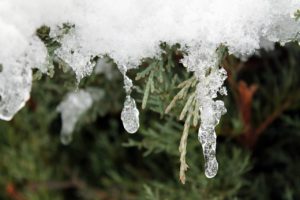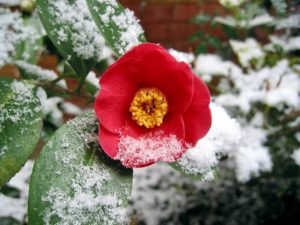How To Prepare Your Garden For Winter
Even Though it may be Spring or Summer or Fall wherever you live, it is a great idea to make sure you get your garden ready for the winter. Winter can come upon us quickly sometimes so it is a great idea to look into what you may need to do to best prepare your garden for the rough weather. Here are some simple steps you can take to ensure that your garden survives the cold season.
 First, you should know what your plants need in order to survive winter. If you have deciduous trees, they will lose moisture during the winter months. If you have coniferous trees, they will lose a lot of leaves in the cold. In addition, it is important to fertilize coniferous plants to help them stay healthy during winter. To do this, you can check the soil to make sure that it contains the right amount of moisture content.
First, you should know what your plants need in order to survive winter. If you have deciduous trees, they will lose moisture during the winter months. If you have coniferous trees, they will lose a lot of leaves in the cold. In addition, it is important to fertilize coniferous plants to help them stay healthy during winter. To do this, you can check the soil to make sure that it contains the right amount of moisture content.
Second, prepare your garden for winter by applying soil amendments and compost. The latter protects plants from hard frosts and wildlife and provides vital nutrients. It is also essential to protect any indoor plants that you have. While the weather outside will protect them, they will suffer from the lack of sunlight and water. If you are growing coniferous trees, you should make sure they are protected from the cold and wind. You will need to add less water and only minimal fertilizer to the soil.
 Third, cover your plants. In autumn, you can trim down your perennials and flower beds. During winter, you can start new plants and transplant them into pots. If you are planning to grow new plants in the spring, make sure you start them early. It is a good idea to keep these in containers as much as possible. Then, when spring comes, you can begin growing them. If you are not ready for this, you can try using containers.
Third, cover your plants. In autumn, you can trim down your perennials and flower beds. During winter, you can start new plants and transplant them into pots. If you are planning to grow new plants in the spring, make sure you start them early. It is a good idea to keep these in containers as much as possible. Then, when spring comes, you can begin growing them. If you are not ready for this, you can try using containers.
Fourth, prepare the plants for winter. The first step in garden preparation for winter is to dig up and remove dead flowers. They should be mulched. You can also cut down the remaining perennial plants and add some soil amendments. It is best to use organic soil as it contains more nutrients and will reduce the risk of disease and pests. The best way to prepare your garden for winter is to follow the steps given below. When you can, you will be able to enjoy the garden in winter!
One of the most important aspects of garden preparation for winter is eliminating all plants that produce slime, which is an ideal food source for pests. It is also important to remove any weeds, since they can cause problems later. Your garden should be watered well enough to remain healthy throughout the winter. Leave alone any plants that produce interesting seed heads, which will provide winter food for birds and butterflies.
As with any gardening project, you should prepare the garden for winter by protecting it from the cold. This means covering the soil and protecting the plants. For vegetable gardens, you should harvest tender vegetables before the last frost. These include tomatoes, zucchini, beans, peas, and winter squash. Be sure to compost diseased plants if you are growing them in a container. A well-prepared garden will also be ready for the spring.
 Another tip for garden preparation for winter is to eliminate weeds in the garden. This is an important part of garden preparation for winter as it will help you get ready for the spring planting season. Leaving flower strips for bees will ensure they can safely nest in these flower strips. If possible, use black plastic trash bags to cover the soil in your garden. This will prevent weeds from sprouting and will also prevent new ones from growing in your garden.
Another tip for garden preparation for winter is to eliminate weeds in the garden. This is an important part of garden preparation for winter as it will help you get ready for the spring planting season. Leaving flower strips for bees will ensure they can safely nest in these flower strips. If possible, use black plastic trash bags to cover the soil in your garden. This will prevent weeds from sprouting and will also prevent new ones from growing in your garden.
It is also important to mulch your garden. This will keep the soil warmer and will provide a warmer environment for your soil-food-web. These organisms will live longer in warm soil and will provide food for the plants. By preparing your garden for winter, you will have fewer problems in the spring. You can also preserve the seeds for the next season. These will be useful in the spring, so be sure to save them and plant them.
Once your garden is prepared for winter, it will be more beautiful than ever! You’ll be able to enjoy the colors and smells of your plants as you enjoy the fruits of your labor.  The fall season is an excellent time to make your garden wildlife-friendly. By mulching your garden, you’ll also help the soil retain heat and retain more nutrients. You’ll be able to enjoy your garden even more in the winter.
The fall season is an excellent time to make your garden wildlife-friendly. By mulching your garden, you’ll also help the soil retain heat and retain more nutrients. You’ll be able to enjoy your garden even more in the winter.
